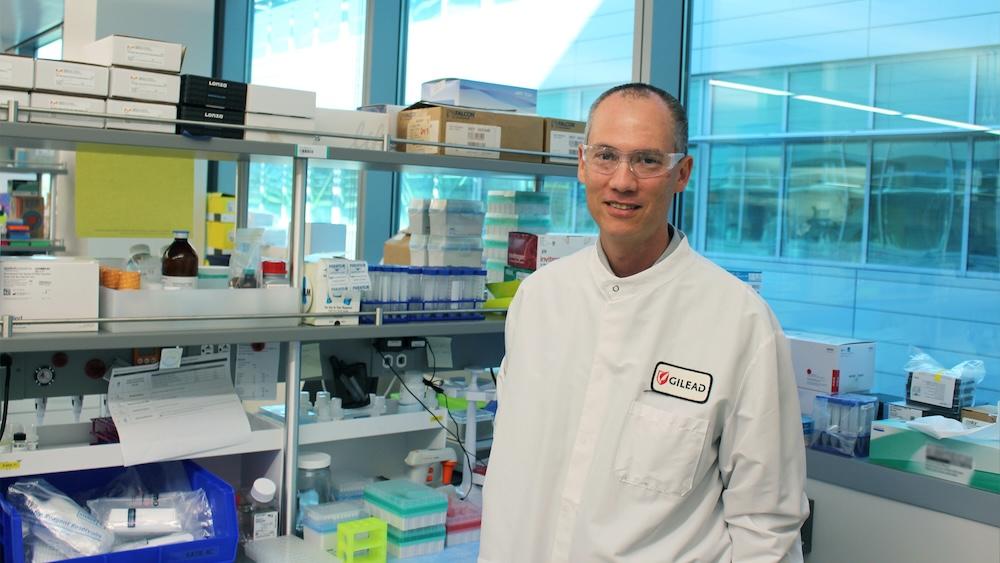Working to Build Next-Generation Cancer Therapies

Jackson Egen learned the value of basic lab research as a graduate student at UC Berkeley in the 90s while working under the direction of renowned immunologist James Allison.
“Jim emphasized that more impactful cancer immunotherapies could come from a detailed understanding of how the immune system works,” recalls Jackson, who today serves as Vice President of Research Oncology at Gilead.
Not only did James teach fundamentals to future researchers, but he went on to be awarded the Nobel Prize in Physiology or Medicine in 2018 for his research that discovered ways to stimulate the immune system to attack and kill cancer cells.
“Since those early days, I’m always thinking about ways to harness the immune system to fight cancer,” says Jackson. In fact, it’s a key component of Gilead’s immuno-oncology strategy. In addition to tapping a person’s own immune system to detect and destroy tumors, the Research Oncology team is working to develop new ways to trigger cancer cells to self-destruct and disrupt the cellular neighborhood around tumors that promote their growth — all with a goal to also help reduce side effects of cancer therapies.
“We know how to stop cancer cells from dividing and we know how to get immune cells to kill tumors. But we can’t always do this without some collateral damage to healthy cells and tissues,” explains Jackson. “That’s the biggest challenge right now, but Gilead has the expertise and aspiration to create therapeutics that have the potential to be effective while limiting toxicity.”
It was Gilead’s proven track record in developing virology medications that was a calling to Jackson when he joined the company in 2021. “The company’s impact on virology drug development is legendary, so when I had the chance to help expand the Research Oncology group at Gilead, I couldn’t turn down the opportunity to apply Gilead’s focus on developing transformational medicines to oncology.”
Fast forward to today, where in a case of the student imitating the teacher, Jackson emphasizes to his team the value of understanding the science behind our therapeutic programs learned in James’ lab. “Everything we do within the organization starts at the bench,” he explains. “Our path forward is informed by the data our scientists generate on a daily basis.”
Collaboration is also a key lesson he learned as a postdoctoral researcher in immunology at the National Institutes of Health. There, he had access to a great diversity of science led by the nation’s leading researchers in their respective fields. He explains how that taught him to proactively identify collaborators and the value of working as part of a larger team. These lessons have informed his belief that establishing strong cross-functional collaborations within Gilead and building key research collaborations with external partners is critical to achieving our ambitions in Oncology. Today, he encourages all levels of his team to contribute to company-wide strategy because he believes good ideas come from everyone. It’s also this type of engagement that he feels makes Gilead so unique.
“I love that my colleagues across the organization, regardless of department affiliation or title, are encouraged to generate ideas about what a new therapeutic might look like,” he says adding, “I believe this gives us a competitive advantage.”
Best of all, he’s encouraged by what the future in cancer care looks like and excited about Gilead’s role in innovating.
“Over the past decades we’ve seen great progress toward making cancer a chronic or, in some cases, a curable disease,” Jackson says. “I’m optimistic that this pace of therapeutic discovery will increase and that Gilead and Kite will continue to have an important role in helping bring new life-saving treatments to cancer patients.”

